Federal election 2019: our verdict on week two of the campaign
After pause for Easter and Anzac Day, Scott Morrison and Bill Shorten jockey for an advantage.
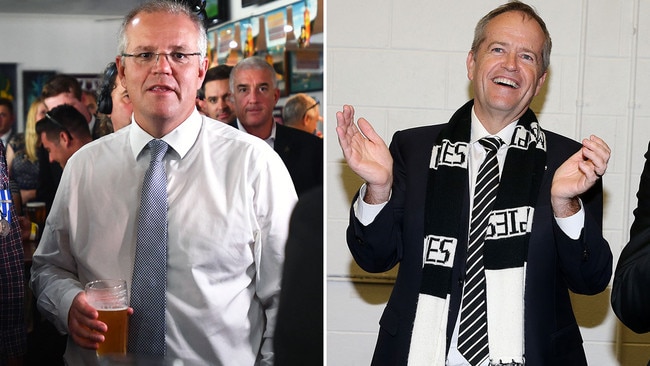
Every Friday during the 2019 federal election campaign, Chris Kenny and Troy Bramston will pass their verdict on the week that was. Here’s how our commentators saw the second week on the hustings, that included breaks for Easter and Anzac Day.
Election 2019 verdict: Week one
Kenny: Shorten’s ‘mythical’ goal for run home
OK, I might have gotten a bit carried away last week suggesting voters were the winners in the first week of the campaign. That prospective scrutiny of both major parties and their policy costings and consequences has quickly descended into entrenched obfuscation and evasion.

The closest Bill Shorten has come to offering an estimate of the economic cost of his recklessly ambitious climate policies is to refer to such a figure as a “specific mythical number”. Cue Sergeant Pepper as the rest of the campaign now looks like being a magical mystery tour on a long and winding road in search of a specific mythical number.
That Jonathan Lea’s straightforward question about this figure is not the first and only question from every journalist on the Shorten bus every day is itself, something of a mystery. Labor is looking to grab headlines on cancer cures, gay conversion therapy, domestic violence and anything else rooted more in emotional responses than costings. And they hope to get away with it.
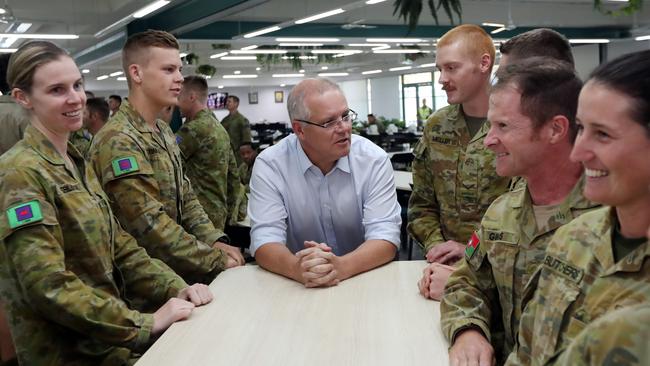
This week Shorten has graduated from avoiding questions to dodging debates and his campaign sidekick Kristina Keneally is more likely to turn up on The Project than answer any serious policy questions. I am sorry to report that if voters won the first week they have definitely lost the second.
PODCAST: Chris Kenny appears on the latest episode of The Scrutineers
Labor, with a little help from The Project and the ABC, desperately tried to put the government on the backfoot over the so-called “watergate scandal” and in the early part of the week they had some success. ABC presenters Virginia Trioli and Patricia Karvelas seemed to have no idea what the basis of the scandal was but didn’t allow such missing elements to prevent them from pursuing it with indignant vigour.
The Coalition took too long to fire back but eventually got some pertinent facts onto the table. They could only dream of a public broadcaster that took climate and energy policy costings as seriously as it takes confected hits over the environmental water deals the ABC has previously championed as terrific Labor/Greens initiatives.
Still, there was a sense in this strange week of holidays and campaign truces that Scott Morrison has been resting on the laurels of his first week gains. He will need to increase the aggression and force more mistakes from Shorten rather than rely on the missteps he already made when he seemingly denied both his own superannuation tax grab and plans to increase the top marginal income tax rate.
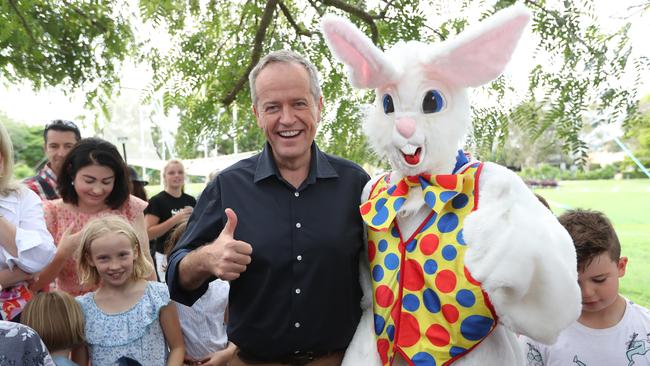
Perhaps it was Shorten’s ode to Easter, denying his own tax policies three times before the cock crows. On that basis he is due soon to tell a property investor that negative gearing will remain untouched.
The bad news for the Coalition again comes from its right flank. The implosion of One Nation had helped feed a rise in primary voting intention for the Liberals and Nationals but now it seems Clive Palmer is on the rise. Wherever voters are lured to a protest vote on the right, Labor will benefit from a drift in preferences on the way back.

Shorten must know that this is the trend that has kept Labor comfortably ahead in the polls for the past three years. And he knows Palmer and Pauline Hanson remain his greatest electoral assets.
The tightening of the contest continues and Labor has lost another week — but not decisively enough to change the narrative. The election remains Shorten’s to lose; what has changed is that more people think he is up to that task.
The one thing Shorten needs to do is prevent the election becoming a headline battle between the two major parties, drawing voters away from the sideshows and back to the main game. And the best way to do that is for the opposition leader to avoid answering questions and change the topic as often as he can. Shorten will try to be specifically mythical for three more weeks.
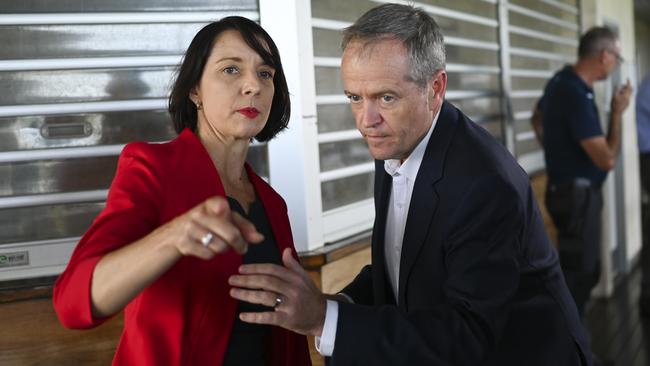
Bramston: We saw leaders’ best, but gloves are now off
Josh Frydenberg may have kicked a goal at the SCG this week — the dream photo opportunity for any politician during an election campaign — but Labor won the week narrowly on points.

The key reason was that Labor had a theme for the week which it stuck to and articulated through a series of policy announcements: improving the wages and working conditions of low-and-middle-income Australians.
Labor’s announcements (some re-announced) included: fast tracking its living wage plan to boost minimum wages for 1.2 million workers; expanding apprenticeships to address skills shortages; increasing wages for temporary skilled visa holders; making it easier for casuals to be made permanent; and legislating domestic violence leave.
Bill Shorten was more on-message than he was last week and again declared the election was “a referendum on wages”. The Labor team had regrouped and reset their campaign after a few stumbles in week one.
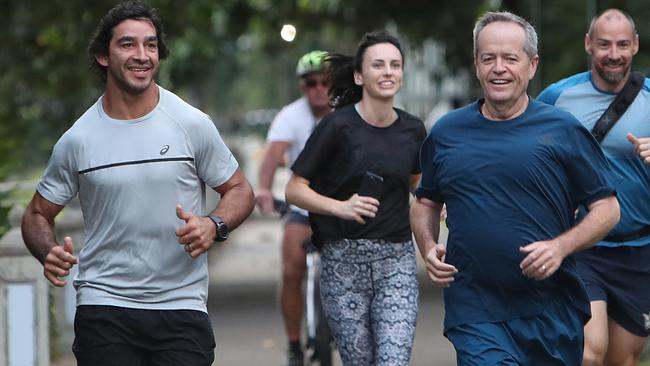
Yet, Labor’s campaign has not been trouble free. The opposition still can’t say what cost to the economy there will be from its ambitious climate change policies. Coalition attacks on Labor’s so-called “retirees tax”, negative gearing and capital gains tax changes, and its false assertion that Labor will introduce a “death tax”, is biting in the electorate.
Shorten continues to neither be strongly for or against the Adani coal mine in Queensland. He says the project will be determined by regulatory approval processes. Labor strategists privately concede he is sending different messages to voters in the regions and the suburbs.
But Shorten was right not to sign the CFMEU pledge on Adani. I’ve consistently urged Labor to cut ties with the CFMEU. If he signed the pledge, he would have been their puppet. Shorten’s critics can’t attack him for being too close to the CFMEU but also refusing to sign their pro-mining pledge.
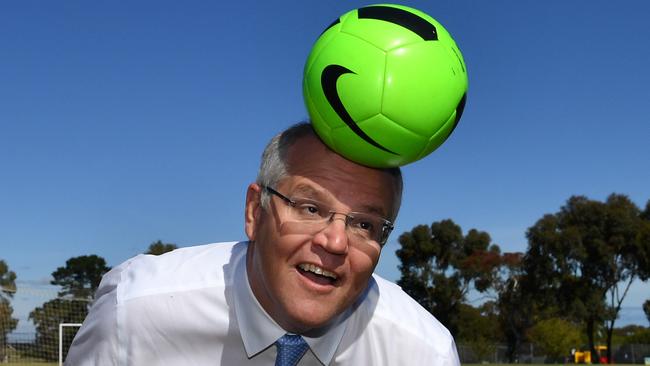
The Coalition did not have a bad week on the campaign trail but they did not have a consistent and coherent cut-through message like Labor did. Scott Morrison and Frydenberg are focusing their fire on Labor’s tax and climate policies.
Morrison’s announcement of an Australian Business Growth Fund to help small and medium businesses access equity is a sensible policy but it was attacked by the Institute of Public Affairs, who said it was akin to “state socialism”. This damaged the Coalition.
The water buyback scandal dominated the week, and it did not reflect well on the Coalition. There are many questions that need answering but I can see no evidence of corruption. Still, Barnaby Joyce did the Coalition no favours with his train wreck interview on the ABC.
Labor will continue to press this issue. It is not only about the internal decision-making processes that led to the water buyback but the issue of water management itself, which is a major concern in the regions. David Littleproud’s decision to audit water buybacks since 2008 only reinforces the perception that something is wrong here.
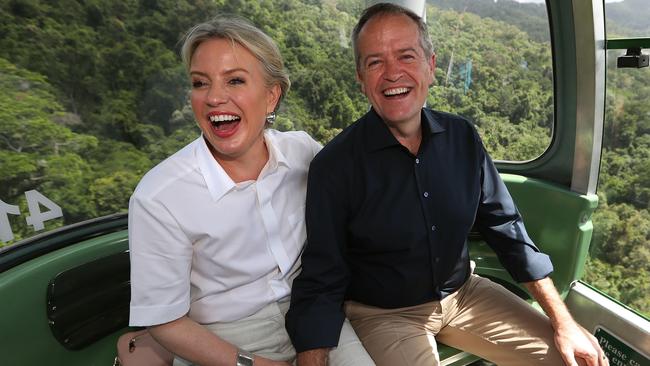
One of the biggest stories of the week was the Newspoll in four marginal seats in four states that show a mainland swing against the Coalition, even though many electorates remain tight contests.
The poll also showed a surge in support for Clive Palmer. It just shows that if you have $30 million to spend on advertising, even a buffoon can buy political influence and perhaps power. Palmer could win a Senate seat in Queensland, probably at the expense of Malcolm Roberts from Pauline Hanson’s One Nation.
The Coalition was quick to strike a deal with Palmer’s United Australia Party to swap preferences. This may be crucial in some close lower house seats. But few minor party voters on the right of politics follow how-to-vote preference recommendations strictly and Palmer needs people to hand them out.
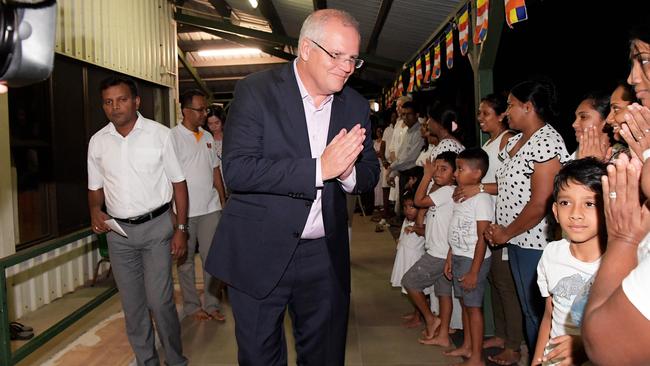
The danger for the Coalition is that it could suffer brand damage by doing a preference deal with Palmer. He lacked integrity in his business dealings. His advertising is dishonest. His candidates have little credibility. Palmer rarely showed up when he was last in parliament and often fell asleep in the chamber when he did.
The week was book ended by Easter and Anzac Day. There was not much of a lull in campaigning as expected. Nevertheless, as Morrison and Shorten attended church services, volunteered for charities and paid their respects to the fallen, we saw them at their best.
This civility won’t last long. With three weeks to go until election day, and voting starting on Monday, we are now in the final stretch and almost anything goes.
